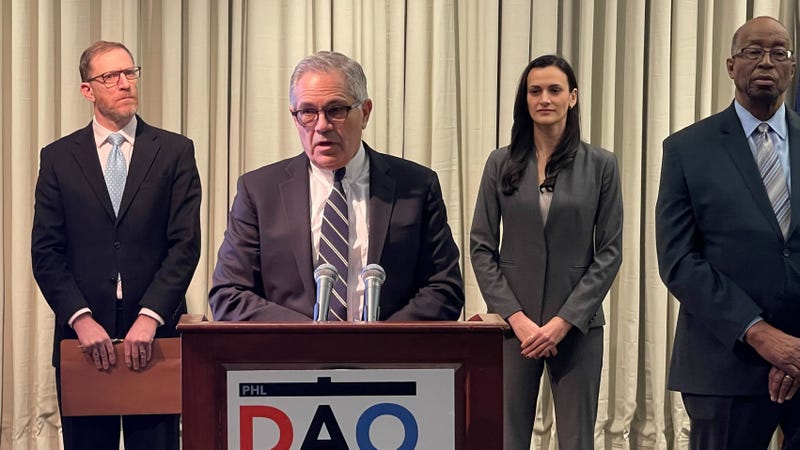
PHILADELPHIA (KYW Newsradio) — A former Philadelphia homicide detective will spend at least two and a half years behind bars after prosecutors say he helped put a man in prison for a murder he didn’t commit.
James Pitts was sentenced on Feb. 7 to 32 to 64 months in state prison, after his conviction last July on perjury and obstruction of justice charges.
District Attorney Larry Krasner said Pitts was known in law enforcement circles for how he got confessions long before he violently coerced one out of Obina Onyiah for a 2010 murder at a jewelry store in Northeast Philly.
“Sadly, Detective Pitts — and those that have been in the system a long time know this — had a reputation for a long time for very questionable conduct in his homicide investigations,” he said.
The 2010 murder at the jewelry store came during an armed robbery that went bad and turned into a shootout, leaving one of the perpetrators and jeweler William Glatz dead. A second perpetrator escaped.
Michael Garmisa of the DA’s Conviction Integrity Unit, which looked into Pitts’s investigation of the case, found that witnesses on the scene had identified a second perpetrator, but Pitts went with the word of a jailhouse informant that identified Onyiah as the second perpetrator.
He then interrogated Onyiah.
“During the course of that investigation, and that interrogation, the evidence we introduced at trial showed that then-Detective Pitts used unlawful force on Mr. Onyiah during the interrogation,” Garmisa said, “and coerced him to confess to a murder he did not commit.”
When Onyiah tried to challenge his confession before going to court, Pitts lied during both a hearing with the judge about how he got the confession and then during the trial, which ended with Onyiah convicted and sentenced to life in prison without the possibility of parole. Onyiah would spend 11 years of that sentence in prison before the DA’s office investigated Pitts.
“When they say things that are false in a courtroom, especially under oath, it’s almost unmeasurably large,” Krasner said, “because what it fundamentally means is that people don’t want to engage the criminal justice system because they don’t believe in it and they don’t trust it.”
